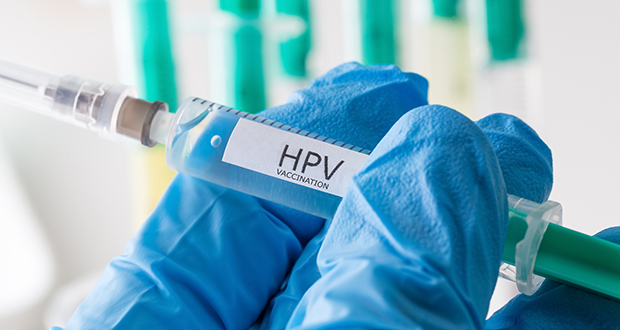Preparations are also underway for at-home HPV self-sampling feasibility studies which, if successful, will likely lead to screening being availed of by more women
Ireland is on course to eliminate cervical cancer by 2040, according to a new report.
Marking the first World Cervical Cancer Elimination Day, health officials stressed that the country is on target to bring cases of the disease down to four per 100,000 within 15 years – the threshold required for cervical cancer to be considered eliminated.
Currently, cervical cancer incidence in Ireland is 11 cases per 100,000 population.
Dr Caroline Mason-Mohan, Director of Public Health, HSE National Screening Service and Cervical Cancer Elimination partnership lead said: “Despite temporary fluctuations during the COVID-19 pandemic years, the long-term trend in cervical cancer incidence since the introduction of our cervical screening programme in 2009, continues to decline. We are performing strongly against the WHO’s targets and remain on track to achieve elimination by 2040.”
Dr Mason-Mohan added: “Our vision is to make cervical cancer rare in every community and key to achieving this goal is the work of our partners working in the community.
“We have trained over 90 community champions on HPV vaccination and screening awareness. Accredited training has been expanded across prisons, homeless services, and Sexual Assault Treatment Units (SATUs).
“The CervicalCheck Screening Training Unit has continued its comprehensive programme of training to sample-takers and expanded their offer to provide bespoke training to sample takers who are now providing screening to key underserved groups. Through these collective efforts we will ensure that no community is left behind as we work to eliminate cervical cancer in Ireland.”
The first progress report of Ireland’s cervical cancer elimination action plan also included updates in HPV vaccination and screening uptake. Among the highlights were:
Research that identified that HPV vaccine uptake is lower in DEIS schools
Planning under way for a school-based catch-up programme which will offer an additional opportunity for those who are unvaccinated to get the HPV vaccine.
A community pilot in Cork and Kerry collaborated with Roma, Traveller, and migrant communities to co-design culturally appropriate communication materials to support vaccine decision making.
A new national CervicalCheck screening register (Cara) is being developed to enhance data integration and quality.
Collaboration between CervicalCheck and NCCP has recommended standardised guidance for detection and management for early-stage cervical cancers which, once implemented, will strengthen national referral pathways and alignment with international best practice.
Preparations are also underway for at-home HPV self-sampling feasibility studies which, if successful, will likely lead to screening being availed of by more women
Dr Colm Henry, HSE Chief Clinical Officer said: “Ireland will eliminate cervical cancer community by community, through the combined efforts of people coming together to take actions that will mean that we can look forward to a future where cervical cancer is rare.
“In the first year since our action plan was published, we have seen the impact of the collective efforts of everyone involved in the cervical cancer elimination partnership. We have seen the power of the work of our community champions, bringing awareness to the needs of their communities to access HPV vaccination and screening.”
Minister for Health Jennifer Carroll MacNeill TD said: “I’m proud that Ireland was among the first countries globally to commit to eliminating cervical cancer. Today marks an important opportunity to reflect on our progress to date, and to reaffirm our commitment to achieving our elimination goals through vaccination, screening and treatment.
“The Cervical Cancer Partnership’s work highlights our collaborative, partnership-driven approach to improving health outcomes for women across all communities. Under the Women’s Health Action Plan 2024-2025 I’ve allocated €530,000 to support innovative initiatives aimed at increasing screening and vaccination uptake, bringing us closer to a truly equitable healthcare service and a future free from cervical cancer.”

